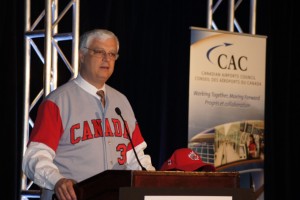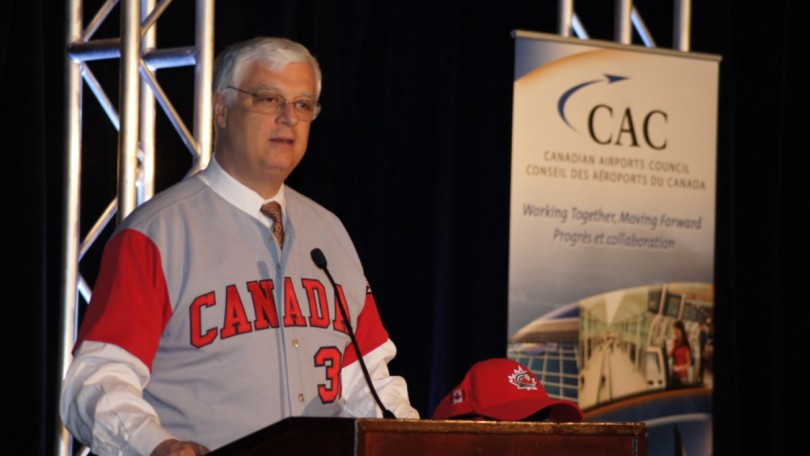The View From Washington: Where Has This President Obama Been?
 So. In my most recent column I wrote that the results of the November U.S. elections – a drubbing for Democrats on both sides of Capitol Hill, including loss of the Senate, as well as a loss of Governors seats in many reliably Democratic states – would result in a more emboldened President Obama. And not just a bolder version, but one treated with more respect.
So. In my most recent column I wrote that the results of the November U.S. elections – a drubbing for Democrats on both sides of Capitol Hill, including loss of the Senate, as well as a loss of Governors seats in many reliably Democratic states – would result in a more emboldened President Obama. And not just a bolder version, but one treated with more respect.
The reason was not only that the results would “free” President Obama to be more himself, but also because Democrats ran against the President’s record almost as hard as Republicans. This resulted in a narrative that Democrats would have done better if they had run closer to the President. This narrative has been widely accepted across the political spectrum, which only helps the President politically. This is amplified by the good economic news: unemployment down, stocks up, consumer confidence up, gasoline prices down. Indeed, today’s (February 7) Washington Post included a major article about the political problems and challenges a growing economy poses for those opposing the President’s agenda.
(Try this exercise. Imagine the 2012 election went the other way and we had a President Romney. Imagine all else that has happened economically since 2012 occurred just the way it has unfolded. A President Romney, with today’s unemployment, stock market and consumer confidence would have given a Reaganesque “Morning in America” State of the Union speech. I guarantee this exercise has been done in the Obama White House. And I guarantee that the President has decided to act the way a President Romney would be acting right now if he had won).
When I shared those thoughts back in November with friends here, and with all of you in that column, I got a lot of funny looks. The President looked not only weakened, but devastated. After all, he was the one who insisted that his policies were on the ballot, even if he wasn’t – a remark that harmed some Democratic candidates. The lack of foreign policy good news did not help.
I am not always right, far from it. But I think that, if anything, I understated the case. We have seen executive actions on immigration and Guantanamo. We have seen a Keystone veto threat (no way he signs a stand-alone Keystone bill, ever, at this point). We have seen an opening, of sorts, to Cuba for God’s sake! We have seen a Republican Congress wanting to show a different way, saying they wanted to address the economy and jobs. But instead, voting on issues like abortion and immigration not seen as integral to what is on most peoples’ minds.
And we have seen the most confident, the most cocky, State of the Union speech I can remember. Though most people like to focus on his “trash talking” retort to the Republican side of the room applauding the fact he will never run again, the whole speech was really an “in your face” statement of his intentions, and of his record. No one imagined in November the President could stand up and say the state of the union is strong. No one imagined him standing there saying his policies worked. And no one imagined that these assertions would be widely accepted. Yet, all of this, and more has happened, while congressional Republican are still organizing themselves.
To be fair to the congressional leadership, it is much harder to corral 535 strong willed elected officials than it is to organize one White House. (And they have a powerful incentive to achieve things on Capitol Hill as increased turnout in the presidential election year of 2016 will put many of those newly won Republican seats in jeopardy if they are not seen as effective). But the President, to the surprise of almost everyone, is operating from a position of strength. If he more effectively aids Ukraine resulting in Russian reversals, and if the U.S. and Jordan and others score some successes against ISIS, this will only deepen. And people all over Washington will disavow whatever it was they said about the President’s lack of strength back in the Fall.
So, what does this mean in a policy sense, especially on issues of interest north of the border.
If you saw the State of the Union Speech, you saw the President face down his own party on trade. His face down of the Republicans on his not running again has gotten all the attention. But his willingness to take on his own party on trade was, to me, the most astounding policy moment of the night. And remember, conventional wisdom has had it that the progressive, trade skeptical, wing of the Democratic party is ascendant.
I am now convinced that a Trans Pacific Partnership (TPP) agreement will be agreed to in this Congress. The current leadership wants to give the administration trade promotion authority, and a good agreement seems within reach. (A note on the American system: the Constitution gives authority over trade to Congress. The establishment of a US Trade Representative, strictly speaking, is a delegation of congressional responsibility to the executive; as everyone knows Congress cannot negotiate a trade deal with other countries. Trade promotion authority, what we sometimes call fast track, simply means an agreement is brought back to Congress for a guaranteed up or down vote. It is not automatically accepted, it still has to be voted on; and voted on by both Houses as it is not a Treaty. But that does not cut Congress out of the action; normally as the agreements are reached and the legislation drafted to implement them, Congressional experts work hand in glove with the administration to write the final product).
It should be noted that Canada was not originally part of the TPP process but, with the support of the United States, was included later.
There will be progress made, I believe, on the tax treatment of profits from U.S. companies; whether from some kind of tax reform effort or from a larger bill that seeks to generate funds to build infrastructure. One proposal reforms the taxation of profits earned overseas and assumes a portion of them will be repatriated, with the taxes being directed to infrastructure projects. Americans love such “new money” ideas, ones that do not seem to cost anything.
I believe by the end of the President’s term, American tourists will start visiting Cuba and enough prisoners will leave it (Guantanamo) to make keeping the prison there open senseless. But remember, the United States has, and will retain, a naval base there and will not give that up. But the prison will finally close.
As I have said, this President will never sign a Keystone bill. The price of energy has come down, and almost no one outside of affected industries and certain political factions even talks about it any more. The job creation claims proponents made seem over blown to most observers and “Fact Checkers.” (Yes, we have a whole “fact checking” industry here). Indeed, I believe the Keystone promotion effort has been among the most mis-handled political/policy campaigns in recent memory. And I am someone who supports the project.
There will be an election in Canada before there will be another in the United States. For better or worse, I doubt the White House will pay terribly much attention to Canada until afterwards. These are President Obama’s “Legacy Years.” No American President ever made his reputation by how well the North American relationship was going. There are too many other things on the foreign policy plate.
But I do believe the election results, the President’s confident steps, and what I believe will be sensible moves by the new congressional leadership to show they can govern; will yield an American economy and policy environment that will be seen as increasingly stable. Which is good news for us down here, and, I believe, good news for my good friends north of the border.
As always, please feel free to share your thoughts and comments: goprincipato@gmail.com
The name
eventbrite is already in use. 
